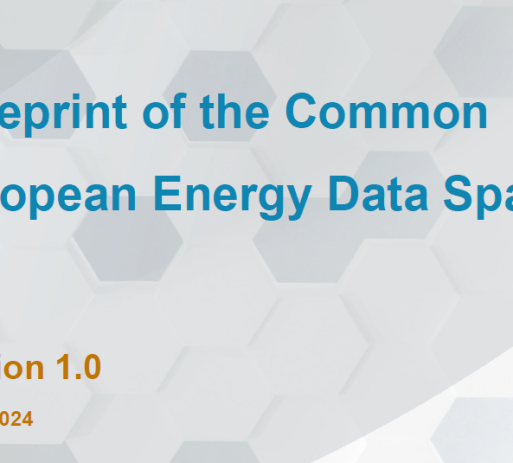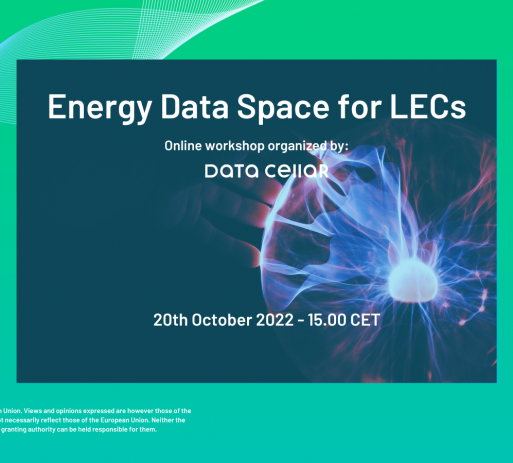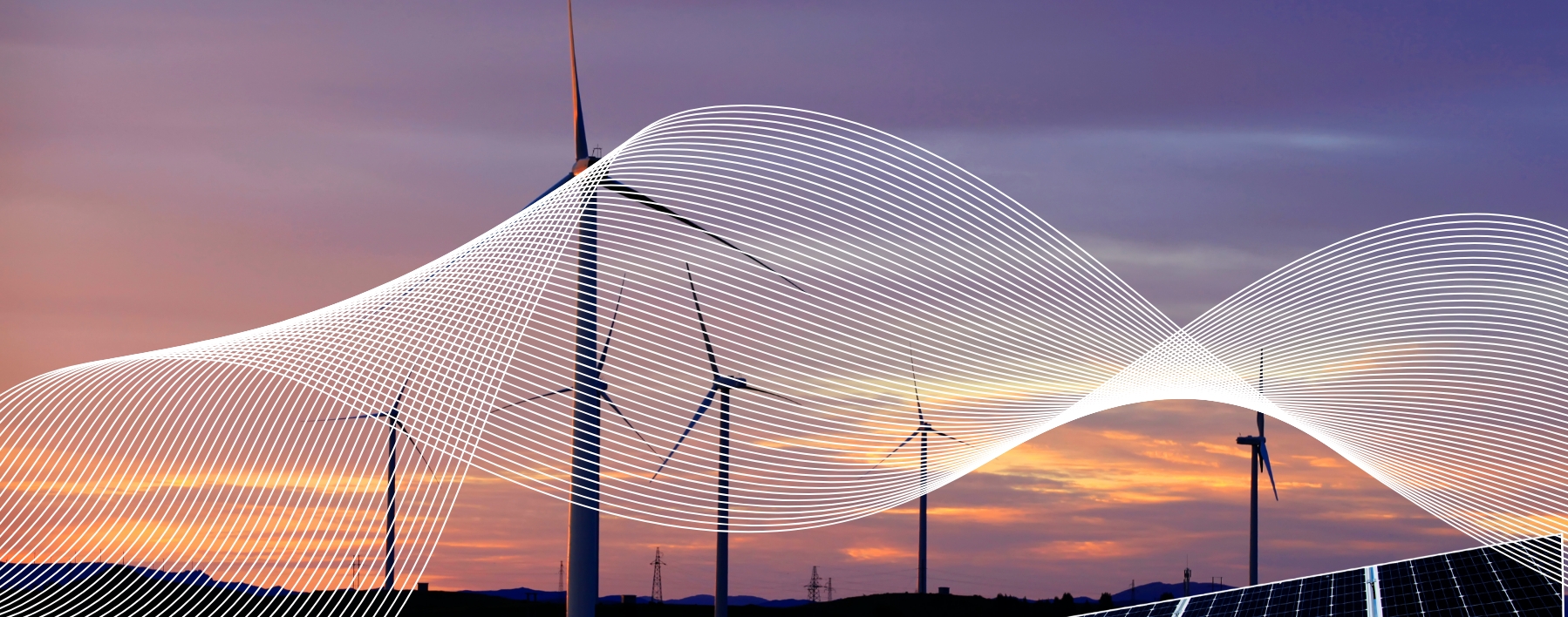Energy Data Space of Gaia-X Steering Committee
Gaia-X is an initiative that develops, based on European values, a digital governance that can be applied to any existing cloud/ edge technology stack to obtain transparency, controllability, portability and interoperability across data and services. Gaia-X is not a market operator, nor will it operate directly or exclusively any of the services required by the governance.
The first of February they held their steering committee and invited related projects and initiatives to participate to find out what they are working on, how they are doing it, and possible synergies that can be found. The meeting was attended by 40 people from 9 countries and 22 companies in person in Paris, and about 30 more people that has joined online.
Details about Gaia-X
The Gaia-X Energy Data Space ambition is, in one hand to provide an ecosystem for the development of use cases at a European scale to foster the energy transition and reach carbon neutrality; and in the other hand, to share data in a trusted, secure and sovereign way, reaching a significant size and becoming a reference for the industry.
It has identified three main orientations to reach the energy data space ambition:
- Governance and engagement – Develop an open ecosystem allowing European energy players across the value chain to work together with a common vision and communicate easily and transparently.
- Use cases and projects – Identify and develop energy/cross sector use cases coming from this ecosystem, with clear business value and viable business models, fostering the energy transition.
- Technical and interoperability standards – Develop and share interoperability, architecture standards, common semantic data models between the energy value chain stakeholders and the different projects, but also with other domains when relevant.
The Specific contribution of the European Commission
The European Commission Action Plan for the Digitalization of Energy and funding was launched in the T1 of 2023 as Data for Energy, to help build a “common European Data Space for Energy”, define its driving principles, its governance, and a portfolio of priority use cases:
- Use cases domains: Flexibilities, Smart charging, Smart and Energy Efficient Buildings and solar rooftops.
- “Data Spaces Support Centre”: It will guide the upcoming sectoral data spaces, and support their creation by making available relevant technologies, processes and tools.
The Commission has planned to launch different calls for proposals in 2024 to support the deployment of this common Energy Data Space. It will provide financial support in 2023 and 2024 for R&I and market uptake of digital technologies in the energy sector cohesion policy and a flagship programme for the Digitalisation of Energy in Horizon Europe. Also, it will support TSO and DSO to create a Digital Twin of the European Electricity grid. And it will implement acts on interoperability requirements and procedures for transparent and non-discriminatory access to data (metering, consumption, demand, response, switching). The top projects launched are IntNet, Omega-X, Enershare, DATA CELLAR, Synergies and Eddie.
The European Commission aims to organise three workshops, two physical and one remote to try to answer these three questions:
- What could be the contribution of Gaia-X and the Energy Vertical of Gaia-X to the EU Action Plan “Digitalising the Energy System”?
- What priority Use Cases could you propose to the EU Action Plan “Digitalising the Energy System”?
- What could be your company’s capability leveraged by the EU Action Plan “Digitalising the Energy System”?
Know more about Omega-X
The Data Space that Omega-X aims for is one based on European common standards, including federated infrastructure, data marketplace and service marketplace, involving data sharing between different stakeholders and demonstrating its value for real and concrete Energy use cases and needs, while guaranteeing scalability and interoperability with other Data Spaces initiatives, not just for energy but also cross-sector.
It counts 30 partners from 11 countries and 8 million euros for three years. Its use cases will be divided into four different groups:
- Renewables – 3 pilots will be carried out in 2 cities (Spain and France). There will be 7 partners involved (3 data owners and 4 data providers).
- Local Energy Communities – 5 pilots will be carried out in 4 cities (Spain, France, Italy and Serbia). There will be 9 partners involved (5 data owners, and 5 service providers).
- Electromobility – 2 pilots will be carried out in 3 cities (France, Germany and Belgium). There will be 8 partners involved (4 data owners, and 5 service providers).
- Flexibility – 1 pilot will be carried out in Portugal. There will be 7 partners involved (5 data owners, and 4 service providers).
Know more about Enershare
Ensershare project aims to develop and demonstrate a European common energy data space which will deploy an ‘intra-energy’ and ‘cross-sector’ interoperable trusted Energy Data Ecosystem.
ENERSHARE defines a Data-Driven Reference Architecture for the energy domain, which is compliant with FIWARE,IDSA and GAIA-X. It creates a marketplace based on Blockchain and Smart Contracts with the aim omproving mutual trust amongst the actors of the ecosystem and increasing the security of the shared data. It also enables a compensation system “even non-monetary” of assets and resources related to data (e.g., datasets, algorithms, models) with energy assets and services (e.g., maintenance of heating system, surplus transfer of locally self-produced energy). Engineering coordinates the project consortium composed of 30 partners and significantly contributes to the development of the resulting Energy Data Space
It will work in different use cases families:
- Wind farm integrated predictive maintenance and supply chain optimisation (Spain).
- Cross-value chain smart buildings/smart mobility/smart grid services for Local Energy Communities and power network operators (Portugal).
- Optimal multi-energy vector planning, electricity vs heat (Slovenia).
- Digital Twins for optimal data-driven Power-to-Gas optimal planning (Greece).
- Cross-value chain data community-centered services for optimising local energy consumption and DSO-level grid operation while coordinating with e-mobility and water-sectors (Italy).
- Data-driven eco-system green production, flexible consumption, and storage capacity (Finland).
- Cross-value chain services for energy-data driven green financing (Latvia).
DATA CELLAR details
The DATA CELLAR data space will be validated in 9 Validation Case which represents different Energy communities at different levels of maturity in terms of the status of the energy community. The Validation Cases represent a wide range of possible energy communities that could be found around Europe and are managed/promoted by different stakeholders.
DATA CELLAR will work to achieve different challenges:
- Passive participation – Empowering citizens for being active, involved, and aware.
- Centralized market – Promote energy data exchange with decentralized data valorisation.
- No control – Data sovereignty by user-centric design.
- Lack of standards – Interoperability with standardization and certification of building blocks.
DATA CELLAR will develop a dynamic, interoperable, energy-oriented data platform to support the creation and operation of Energy Communities. Its main objectives are:
- Deliver data-driven energy services to support the energy transition.
- Development, validation, and demonstration of a dynamic data hub.
- DLT-based open marketplace and novel business models.
- Implement privacy and cybersecurity by design.
DATA CELLAR will have direct beneficiaries from three groups: scientific community and data analytics providers (marketplace), Energy communities (optimal RES sizing, resource management and environmental and economic assessment), and Energy Consumers/Prosumers (flexibility estimation and building energy performance).
Know more about IntNet
IntNet establish an open and cross-domain community: The Interoperability Network for the Energy Transition (int:net). Within the int:net-interoperability network we bring together all stakeholders relevant to the European energy sector to jointly work on developing, testing and deploying interoperable energy services.
The int:net-interoperability network will be formally established to exist beyond our project lifetime. With a comprehensive, FAIR knowledge platform and a series of attractive events, the int:net-community guides those who deal with the heterogeneous interoperability landscape of energy services.
To support the ongoing harmonisation of energy services, the int:net project will institutionalise an assessment methodology and maturity model (IMM). We will involve legal and regulatory bodies from the beginning of our work and have a constant exchange with interoperability initiatives and standardisation bodies. Thus, int:net will build a deep consensus on how European governance and industry can foster interoperability on all levels
The project has four main objectives:
- Consolidating a common knowledge base for interoperability activities on energy services in Europe.
- Developing a comprehensive and accepted Interoperability Maturity Model (IMM).
- Deploying a framework for interoperability testing in a network of interoperability testing facilities.
- Fostering a community network of standards and regulatory environment for a European interoperability ecosystem.





